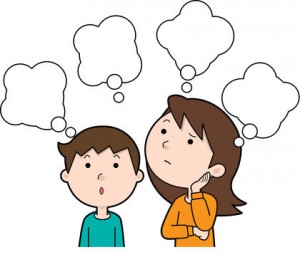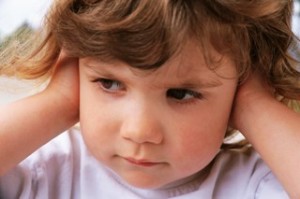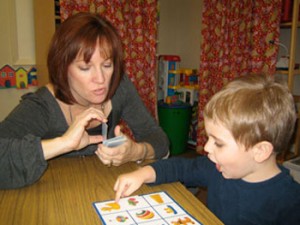Receptive Language Disorders
What Is It?
A child with a receptive language disorder has problems understanding spoken language. He may also experience difficulties interpreting written language. Like other language disorders, these issues are not usually linked to the child’s intelligence. Some children have a mixed receptive-expressive language disorder, which means that they also have difficulty expressing themselves. In most cases, parents will notice the symptoms of a receptive language disorder before the child reaches his fourth birthday.
Symptoms
If your child has a receptive language disorder, the words that you say to him may sound like a foreign language, particularly if you speak quickly. He may often appear to be ignoring you, when in fact he simply cannot understand the words. When you read to him, he may appear uninterested. He might also ask you to repeat yourself frequently.
Another common symptom of receptive language disorders is echolalia, which refers to the parroting of words or phrases. For example, if you say, “Drink your milk,” your child might repeat these words immediately or later, but he will not necessarily understand them.
In particular, children with this disorder have difficulty following directions. If you ask your child to point to his toes, he is not likely to do so. He is also likely to have problems with figurative language. He may interpret the phrase “I could eat a horse” literally.
Diagnosis
If you suspect that your child might have a receptive language disorder, bring him to a speech-language pathologist (SLP) as soon as possible. The SLP will observe how your child interacts with various people. She will also test his language comprehension.
Diagnosing a receptive language disorder also requires the expertise of an audiologist. Your child might be suffering from hearing loss instead of a language disorder. You should also have his vision evaluated because children who cannot properly see visual cues may have problems interpreting language. A neuropsychologist can also evaluate your child for any possible cognitive issues.
Treatments
A speech therapist can help your child learn to connect words to their meanings. The SLP will work on vocab development and she will also encourage your child to practice verbal interactions.
SLPs often repeat target words with children with receptive language disorders. For example, she may reinforce the word “place” by saying, “Can you PLACE the truck on the table? PLACE the truck right over here on the table. That’s right. You PLACED it on the table.” The SLP will add emphasis to the target word, speaking it loudly and in an exaggerated manner.
Sometimes, a child’s difficulty with language comprehension can frustrate him to the point of engaging in temper tantrums and other behavioral issues. Cognitive behavioral therapy is a possible treatment option for these problems.





